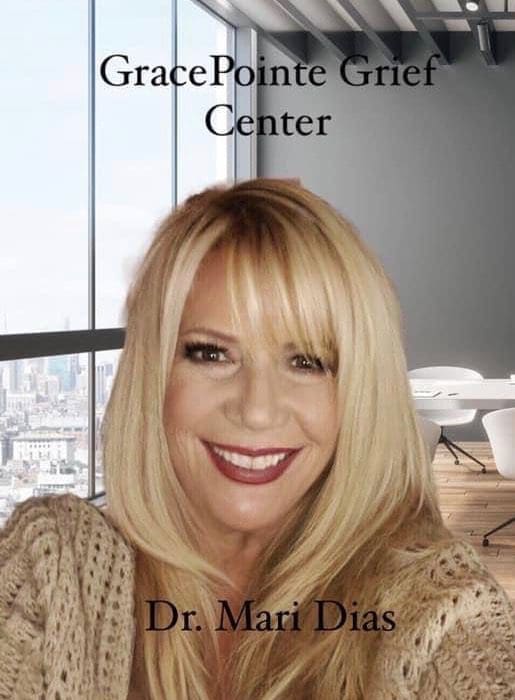Search Posts
Recent Posts
- Senior Agenda Coalition of RI pushes wealth tax to fund programs for older residents – Herb Weiss June 2, 2025
- How will Artificial Intelligence (AI) impact the future of work – Mary T. O’Sullivan June 2, 2025
- Real Estate in RI: Tiverton contemporary for $1.27M June 2, 2025
- Our Networking Pick of the Week: Coffee Hour at Provence Sur Mer, Newport June 2, 2025
- Rhode Island Weather for June 2, 2025 – Jack Donnelly June 2, 2025
Categories
Subscribe!
Thanks for subscribing! Please check your email for further instructions.

GriefSpeak: Take the path going forward – Mari Nardolillo Dias
by Mari Nardolillo Dias, contributing writer
As a member of several private, online grief groups, I am constantly surprised at the number of grievers who pose an example of their thoughts, feelings and/or behavior and then ask members of the forum:
“Is this okay? Is there something wrong with me?” “People tell me I need to: move on, sell the house, get over it, remove the “trigger”, etc.
One woman stated that she found her husband dead on a recliner in the living room after she took a quick visit to the kitchen for some tea. Her therapist told her to:
“Get rid of the recliner… It is a reminder of his sudden passing and will trigger your grief.” The woman was upset because she wanted to keep the sofa. It was not a trigger for her grief, but a comfort. The last place he sat.
Two additional grievers stated that upon their first session with a therapist, they were told:
“Grief takes a year. Go home. You will be fine when the first year ends.”
Although I prefer to honor my colleagues, I am adamantly against telling a client what is a trigger and putting a timeline on grief. Clients are the experts of their own lives, not clinicians. Grievers know what feels good. Comforting. And what feels bad/awful. Clinicians may hear another message in a subtext, but it is important for the client to have the realization, not for the clinician to tell them.
Fortunately, these online private groups do tend to be supportive and empowering, responding to posts with an apparent permission slip to grieve in their own way. Society – not so much. I believe that generally people are trying to help us with our grief; however, their efforts may fall short based on their level of discomfort.
One recent post asked a very familiar question, one that grievers are fraught with, and often paralyzed by.
“Does anyone else blame themselves for the loss of a loved one?”
Bingo. A slew of affirmative responses poured in immediately. One of the 3 reasons researchers found for guilt is to distribute emotional stress. According to Elisabeth Kubler-Ross, “Guilt is perhaps the most painful companion to death.” Guilt is often the emotion that accompanies other grief related feeling, and thus is the reason it is difficult to understand. In grief, people experience guilt and regret. Guilt can hold us in bondage and isolate us as we alter our world view. Regret is what we feel when we identify the “shoulda, woulda, couldas”- things we would have been done differently. (Laura B, Transitionslifecare.org
We often confuse the two. According to transitionslifecare.org, the steps one may take are:
- Tell someone you trust what you are feeling
- Write a list of what you feel bad about
- If it is regret, write a letter to the deceased or to the terminal ill if you have the time
- Forgive yourself.
- Look for a lesson you can learn from the experience
- Allow yourself to remember the things you did right
The old adage ,“hindsight is 20/20” is not particularly accurate in this situation. You can regret the words you said or did not say, you can feel guilty for acting rude or angry; however, these emotions are weighty and cannot be rectified. To what end? Will you spend your life beating yourself up for what was, or allow yourself to remember the things you did right and live for what is? Learn from the experience. If you didn’t say “I love you”, tell everyone you love them. Now. Live with no excuses, no regrets.
_____

Dr. Mari Dias is a nationally board-certified counselor, holds a Fellow in Thanatology and is certified in both grief counseling and complicated grief. Dias is a Certified death doula, and has a Certificate in Psychological Autopsy.
She is Professor of Clinical Mental Health, Master of Science program, Johnson & Wales University. Dias is the director of GracePointe Grief Center, in North Kingstown, RI. For more information, go to: http://gracepointegrief.com/

